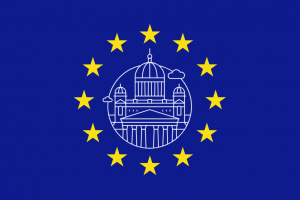EAA Case Study: Finland
 The European Accessibility Act has galvanized many European countries and The DAISY Consortium has been pleased to take part in many interesting and collaborative conversations with partners, members and interested parties.
The European Accessibility Act has galvanized many European countries and The DAISY Consortium has been pleased to take part in many interesting and collaborative conversations with partners, members and interested parties.
Each country has their own story and their own unique set of experiences in approach to the EAA and we are attempting to capture some of these in our new series of case studies. The more we can share and learn from each other, the better prepared we hope everyone will be.
Finland
First up is Finland, a country with two official languages, Finnish and Swedish, and with a relatively small book market. We had the pleasure of speaking with Miia Kirsi from Celia who are integral to the Finnish approach to the EAA. Celia, the national library for accessible literature and publishing in Finland, works towards equality in reading and learning and belongs to the administrative sector of the Ministry of Education and Culture.
Publishing houses in Finland tend to be small and, in accordance with the EAA, micro-enterprises are not necessarily required to adhere to the new legislation. The hope is that everyone will make the effort to comply, irrespective of their size. Audio publishing, and consequently all forms of digital publishing, is experiencing something of a boom in Finland and in 2020 the ebook market represented 4500 titles. Not bad for a population of just 5 million!
With regards to accessibility, it is far to say that for many this is still an afterthought in Finland. Education publishers are probably furthest ahead because of accessibility requirements for students. Ironically, trade publishers, for whom the accessibility challenge is arguably the most straightforward, are not doing so well and publishers don’t tend to consider the user experience.
Stakeholder Platforms and Industry Collaboration
In Finland, various government ministries are responsible for the implementation of the EAA. To foster collaboration there have been intra-ministerial meetings to which all stakeholders have been invited
Celia works hard with other stakeholders to address challenges and their close collaboration with The Finnish Publishers Association is particularly important. On October 6th they are co-hosting a seminar “Accessible Ebooks: From Directive to Practice”. Together, both organizations are actively advocating for EPUB 3 and are looking for ways to provide training in this area.
Celia also takes part in the Nordic Inclusive Publishing Initiative (NIPI) which meets twice a month to share information. The group has members from all five Nordic countries and organized an online accessibility conference Include! in November 2020. There are plans for another conference focusing on Inclusive Publishing for Spring 2023.
Pilot Project to Assess Digital Files
Of the 4500 digital titles produced in Finland annually, the majority are produced in EPUB 2 – something which Miia and her team explored during their Accessible EPUBs Pilot this year. The main goals of this project were:
- To assess the current accessibility status of EPUB files
- To gather information about typical EPUB workflows
- To identify risks and weaknesses in the production of accessible content
- To identify and develop materials that are needed
It appears that publishers are not tending to specify EPUB 3 – many are used to working with print-based workflow models so aren’t inclined to change. That being said, many of the files that were examined for this project did include accessibility features and were more accessible than expected. All had some semantic markup and many of them included a Table of Contents. They weren’t “accessible” per se but a move towards EPUB 3 could hail great improvements.
Other areas that need attention are:
- The use of accessibility metadata
- XHTML files need improving – correct use of language tags etc
- Inclusion of alt text
What is apparent from this project is that the publishing industry in Finland still looks to the print version first with the digital version being an afterthought. Digital files are not given the same level of scrutiny as print PDFs are given.
Challenges in this Market
- Post-production work for InDesign files needs attention
- Responsibility: everyone needs to take an element of responsibility throughout the publishing workflow
- Knowledge and Awareness needs improving
- Understanding of Tools and Solutions
Implementation Plans and Resources
The government has prepared an implementation plan: The National Implementation of the Accessibility Directive for Products and Services (provided here in Swedish for easier translation). This is an ongoing project looking at all areas of implementation within the Finnish market.
The Finnish Publishers Association and Celia plan to collaborate on various fronts to help the publishing industry prepare for the requirements of the EAA, to find reliable resources and obtain information about accessible publishing in Finnish or Swedish, all to be made available on a website that will point users to the correct path.
Top Tips for Other Publishers on their Accessibility Journey
- Use InDesign more effectively!
- Educate all departments within a publishing workflow about the role they need to play.
- Not all areas can necessarily be outsourced – awareness about accessibility needs to be addressed in-house also.
- Metadata needs early attention and training for in-house staff on the importance of accessibility metadata is vital.
Our thanks to Miia for her collaboration on this case study. If you are interested in the work being done by Celia in this area or would be interested in taking part in a similar case study please contact us for further information.

